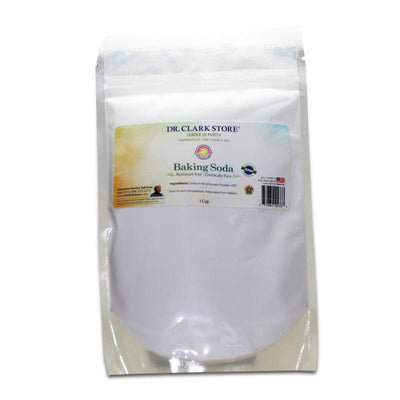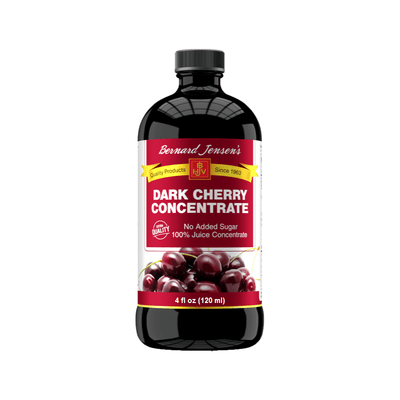New Product: Mimosa Pudica -This "Sleepy" Plant is a Health Dynamo

Mimosa pudica L., also called sleepy or sensitive plant, known for its ability to move in response to light, dark touch, wind or shaking. It has been used for thousands of years in Ayurvedic, traditional Chinese and Greco-Arab medicine to treat a range of conditions, such as cancer, fever, cough, cholera, tuberculosis, dysentery, jaundice, and uterine issues and for removing amoebic and other parasitic infections.
Recent pharmacological studies have indeed confirmed anti-cancer, anti-oxidant, neuroprotective, immune boosting, anthelmintic, antidepressant, wound healing, and hypolipidemic properties (1). The reason for this wide range of effects is revealed in its phytochemistry, containing potent alkaloids, terpenoids, flavonoids, sterols and phenols.
Anti-Bacterial
Only recently have more studies been done on the activities of specific components, such as L-mimosine, of Mimosa pudica. A study in 2022 found that the amino acid, L-mimosine, was a “potent antibacterial compound” and the general constituents of the plants are “right in phenolic and flavonoid compounds” that inhibit bacterial growth and scavenge free radicals (2).
Anti-Parasitic
Considering nearly 1/3 of the world’s population faces infection with helminth parasites, the search for effective remedies with little side effects continues. Quite a few studies have shown that Mimosa Pudica has dose-dependent effects against helminths. Tannins prevent the parasitic worms from producing energy, while the alkaloids work to paralyze them, and the resulting free proteins kill them.
In a study of the effects on parasitic gastroenteritis, scientists found that Mimosa pudica caused a sharp drop in all markers of parasite infection, such as reduced egg count, reduced parasite burden, and improved hematological parameters (3).
One study found that the leaf extract was more effective than the conventional drug, albendazole, and that in addition to the anti-helminthic activity, the flavonoids in the extract also shows anti-cancer activity against breast cancer (4)
Anti-Anxiety, Anti-Depressive and Neuroprotective
Herbal plants have proven to be more effective and desirable compared to conventional treatment drugs, which often have side effects. To test the anti-anxiety effects, one set of researchers conducted multiple experiments with mouse models that simulated the same kinds of anxiety-promoting effects as experienced in humans, such as having to climb a ledge, balance, or walk a narrow width. They also performed a forced swimming test, and a tail suspension test. Compared to the control groups and drug-treated groups, the mice treated with Mimosa Pudica experienced marked improvement in anti-immobility, anti-depressant, and anti-anxiety effects. The authors suggest that the anti-depressant effects are likely due to the fact that the mice experienced a reduction in corticosterone.
Mimosa Pudica may work by regulating brain-derived neurotrophic factor (BDNF) and its interaction with the monamine system, resulting in improved neuroplasticity, neuronal survival, and neurogenesis. Other studies have found that it may provide neuroprotective benefits in Alzheimer’s disease (5).
“Our results demonstrated that ethyl acetate extract of M. pudica exerts potent anti-depressant like effects in behaviors involve the normalization of neurochemical abnormalities in the monoamine neurotransmitter system.”(6).
Further studies on the use of Mimosa Pudica for neuroinflammation and neurodegenerative disease, found that the herb was effective for improving memory, choline balance, and neuroprotection in mouse models (7).
Liver Protective
A study on rat liver cells discovered that the cells were protected from oxidative damage, and that rats fed alcohol and Mimosa Pudica, experienced significantly reduced depletion of glutathione and vitamin C (8).
Gi Tract Protective
Several studies have been done on water extracts of Mimosa Pudica, and its ability to target mediators of inflammatory bowel disease (IBD). IBD is associated with dysfunction of the colon, as well as inflammation of the musical lining of the colon and rectum, leading to ulcers. The severity of the condition is dependent on the individual’s microbiome, as well as their immune system and environment. Interestingly Mimosa Pudica was found to prevent weight loss cause by IBD, reduce the colon ulcerations, colonic inflammation, and pro-inflammatory cytokines,
Anti-Fibrotic
Puliminary lung fibrosis is a poorly understood condition, thought to be caused by the combination of damage to alveolar epithelial lining, and impaired wound healing. One study tested the effects of Mimosa Pudica on the inflammatory response in rats. Similar to other studies, which have found that M. Pudica reduced airway inflammation and had antispasmodic effects, the researchers found that M. Pudica reduced expression levels of fibrosis-related genes/proteins (8). This result confirms the previous studies that showing that various compounds, such as l-mimosine, gallic acid, quercetin and luteolin, were responsible for inhibiting the development of lung fibrosis in animals. Therefore, Mimosa Pudica offers promising theapuetic potential for fibroid tumors as it contains multiple antifibrotic compounds.
What is Goldenseal?
Our Mimosa P. formula also contains the synergistic herb: Goldenseal
Godensseal, (hydrastis canadensis) is a wild herb at constant risk of overharvesting due to its popularity. It has high effectiveness in fighting bacterial infections and has shown anti-cancer properties, such as apoptosis of tumor cells, and tumor suppression (9). The key chemcial in Goldenseal responsible for these activities is Berberine, which has shown cytotoxic activity against many different cancer cell lines like non-small cell lung cancer, Lewis lung cancer, colon cancer, bladder cancer and several types of leukemia. Berberine appears to operate by downregulating 33 genes involved in cancer cell cycle and differentiation, while upregulating genese that cause cancer cell cycle arrest, and apoptosis (9).
It has also shown to decrease plasma cholesterol, reduce fatty liver deposits, and trigger cholesterol regulating effects, that do not seem to be due to the berberine alkaloids. In fact, researchers have found that all of the alkaloids work together synergistically.
“It has been well-documented that BET supplementation boosts cellular antioxidative defense mechanisms and prevents lipid peroxidation, oxidative damage of cellular proteins, and defect in cellular antioxidant defense mechanisms in biological systems .BET could increase cellular GSH level, and enhance the activity of antioxidant enzymes such as glutathione peroxidase, glutathione transferase, and superoxide dismutase. It has been also demonstrated that BET could act as a radical scavenger. Several studies also mentioned the positive effects of BET on cellular mitochondria. BET effectively mitigates mitochondria-facilitated ROS formation and oxidative stress."

Goldenseal root extract offers a variety of potential health benefits, primarily due to its active compounds and their derivatives. Here are some notable advantages:
-
Antimicrobial Properties: Goldenseal is known for its ability to fight infections caused by bacteria and viruses. Berberine, one of its main components, has shown efficacy in this area.
-
Anti-Cancer Effects: Recent research has proven its anticancer activity, including proapoptotic and combination therapy benefits, with lox toxicity to normal cells (10). Berberine, an isoquinoline alkaloid, interacts with DNA forming DNA triplexes or quadruplexes to block certain cancer activities such as telomere elongation (12).
-
Digestive Health: Goldenseal has been promoted for its use in alleviating digestive issues, such as ulcers and other gastrointestinal disorders.
-
Immune Support: It may bolster the immune system by supporting normal inflammatory response and bacterial balance.
-
Potential Anti-Tumor Activity: Some studies suggest that goldenseal compounds might slow the growth of tumors.
-
Blood Pressure and Cholesterol Management: Berberine in goldenseal has properties that can help lower blood pressure and manage cholesterol levels (11).
-
Metabolic Support: There is emerging research suggesting its potential benefits in managing diabetes and possibly cholesterol levels.
-
Traditional Uses: Historically, goldenseal was used by Native Americans to treat sore eyes, mouth ulcers, tuberculosis, and edema.
Mimosa Pudica w/ Goldenseal
$19.95
Mimosa Pudica w/ Goldenseal extract





Leave a comment